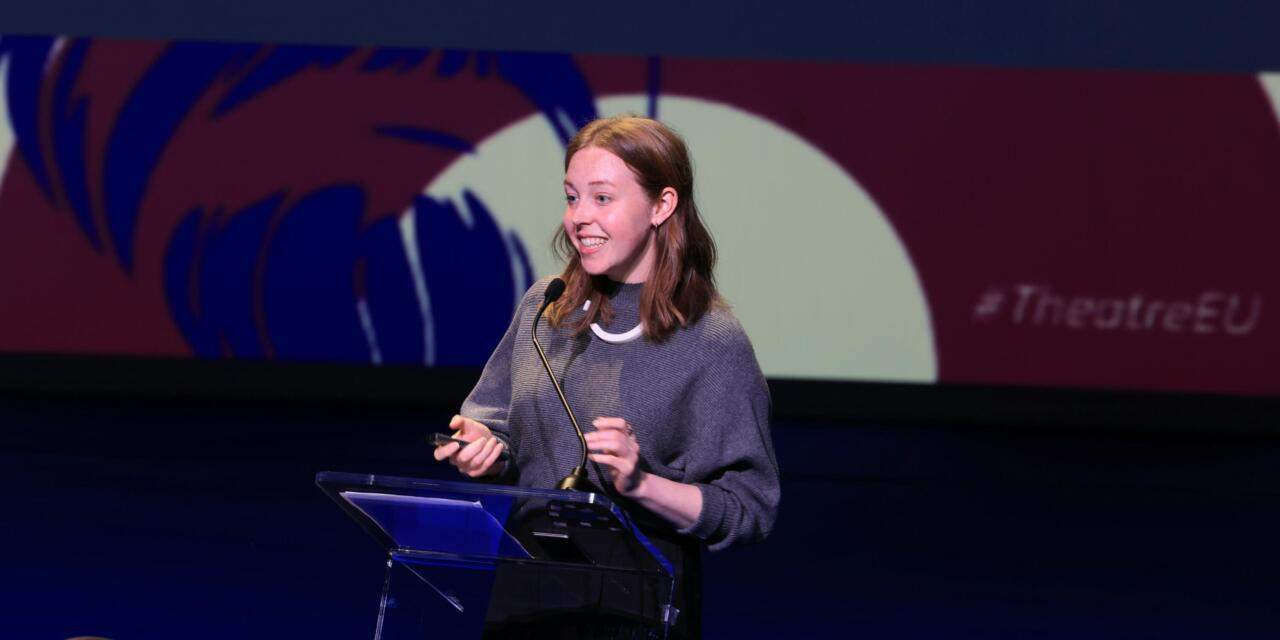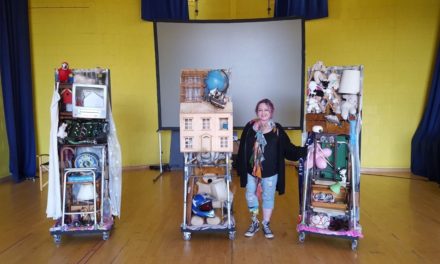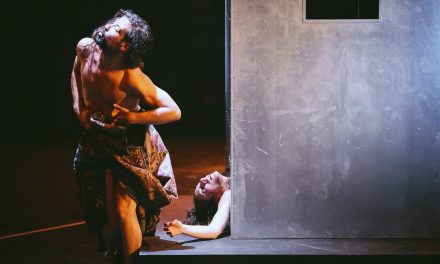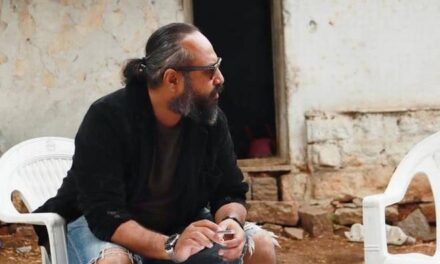European Theatre Convention published a new study, Digital Theatre – Strategies and Business Models in European Theatre. Kasia Lech speaks to its author Katie Hawthorne, whose doctoral thesis at the University of Edinburgh covered digital technologies and ‘liveness’ in performance, and it was developed in partnership with the Academy for Theatre and Digitality in Dortmund.
Kasia Lech: How did you become interested in the topic of Digital theatre?
Katie Hawthorne: I first became interested in digital theatre whilst studying for my Master’s degree; my dissertation examined the banning of Frank Castorf’s production of Baal, and how its removal from the public sphere resulted in a really interesting digital afterlife. From there, my interest only grew. I was particularly fascinated by the popular misconception that theatre, as a live artform, is incompatible with digital innovations, and this led to me returning to the University of Edinburgh as a PhD student.
My doctoral thesis explored liveness in performance through this lens: I argued against the idea that digital is the opposite of liveness, and analysed how the creative use of digital tools and technologies can bring us new forms of live performance. Researching these topics during the COVID-19 pandemic was a tough but exciting challenge, and I was really lucky to have the guidance of my co-supervisors Professor Laura Bradley and Dr Anouk Lang.
KL: Tell me about your Digital Theatre – Strategies and Business Models in European Theatre study. How did you decide on the method?
KH: When I was invited to work on the Digital Theatre study, a few factors had already been decided by the ETC and the Academy for Theatre and Digitality. We knew that we would use a survey to reach the ETC member theatres, and that we wanted to include interviews with specific theatres – sometimes digital modes of performance can be hard to imagine, and we hoped that case studies would help to illustrate our findings.
From there, I designed a survey which was sent to all ETC member theatres across Europe. It asked for a lot of information concerning the years 2019-2021, ranging from annual production budgets to data on ticketing, staffing, hardware and software. The survey also asked the member theatres to give their opinions on the role that digital technologies will play in their theatres in the future.
A major challenge was to balance certain structural differences (for instance, some theatres work to different production schedules and fiscal calendars), and to use the data to examine the strong thoughts and feelings that the member theatres reported in their textual responses. Another difficulty was to judge how “up-to-date” we could make the study, without sacrificing the ability to accurately analyse the data.
KL: What were the key findings?
KH: Our key findings are broad! We were grateful to have nineteen theatres from seventeen European countries complete the survey in full, and as such the study gives a unique perspective on digital theatre in major theatres across Europe.
For instance, the study shows the impact on the pandemic on European theatre ticket sales, which were cut by two thirds in 2020. It also shows a dramatic increase in digital theatre in the same period: ticket sales for digital productions increased by 772% between 2019 and 2020.
We learned that digitally distributed theatre (which is the broadcasting of theatre to remote audiences) was by far the most prevalent form of digital theatre in 2020, but that by 2021, theatres were growing more interested in digitally mediated theatre, a form which embeds technologies within the form and content of in-person productions.
The ETC member theatres also told us that the cost of producing digital theatre is challenging, and that it can be difficult to negotiate contracts and rights for digital forms of theatre that are hosted online. Alongside this, we saw that although digital jobs in European theatres have increased by 268% since 2019, a greater proportion of these roles are short-term or freelance. As a sector, we clearly need to work to make sure that digital theatre is equitable for everyone.
KL: What are the main concerns over digital theatre amongst the practitioners?
KH: Digital theatre remains divisive. It was fascinating to learn that the main reason for a theatre not to produce any digital work was a “lack of interest” from the creative team. It is clear that many theatres consider digital methods to be antithetical to their artistic methods, and I’d like to take this opportunity to stress that the study was not designed to persuade any participating theatres to change their artistry. Rather, I hope that the study can help to empower theatre to make informed decisions about their relationships to technologies, in terms of both creativity and business strategy, moving forwards.
KL: If artists want to develop digital practices, what do they need?
KH: As above, I don’t believe that artists need to develop digital practices. However, if they are interested in working creatively with technology, I would recommend reading our case studies from Dakh Theatre in Kyiv and Folkteatern in Gothenburg: both these theatres have found exciting, innovative, creative ways to expand theatre through technology, and without extraordinary financial investments. Instead, they both agree that the biggest investment is time: working with new tools can feel like a learning curve, and it’s important for artists and programmers to be able to take the time to find their voice.
On the financial side, I would love to see European financial support for long-term digital theatrical projects. Many theatres told us that funding tends to be available on a short-term, project-by-project basis, and this doesn’t help them to plan for their futures. Theatres across Europe have made incredible progress over the last four years, and it was a privilege to learn about the creativity, resilience, and ingenuity that they have shown in extraordinary circumstances. But I hope that all this knowledge doesn’t simply fade away in the years to come, and I think specific, longer-term funding schemes for digital projects would be hugely beneficial.
KL: And what is the next thing for you?
KH: I’m continuing to work for the Academy for Theatre and Digitality: my role is to help the Academy’s artistic researchers document and communicate their findings, through our soon-to-be-launched new research platform.
I’m also working as a freelance journalist and researcher, and hope to find further opportunities to continue my academic and consultancy work. I know that the road ahead holds exciting opportunities and further challenges for the theatre industry, and I look forward to continuing this research!
This post was written by the author in their personal capacity.The opinions expressed in this article are the author’s own and do not reflect the view of The Theatre Times, their staff or collaborators.
This post was written by Kasia Lech.
The views expressed here belong to the author and do not necessarily reflect our views and opinions.


















